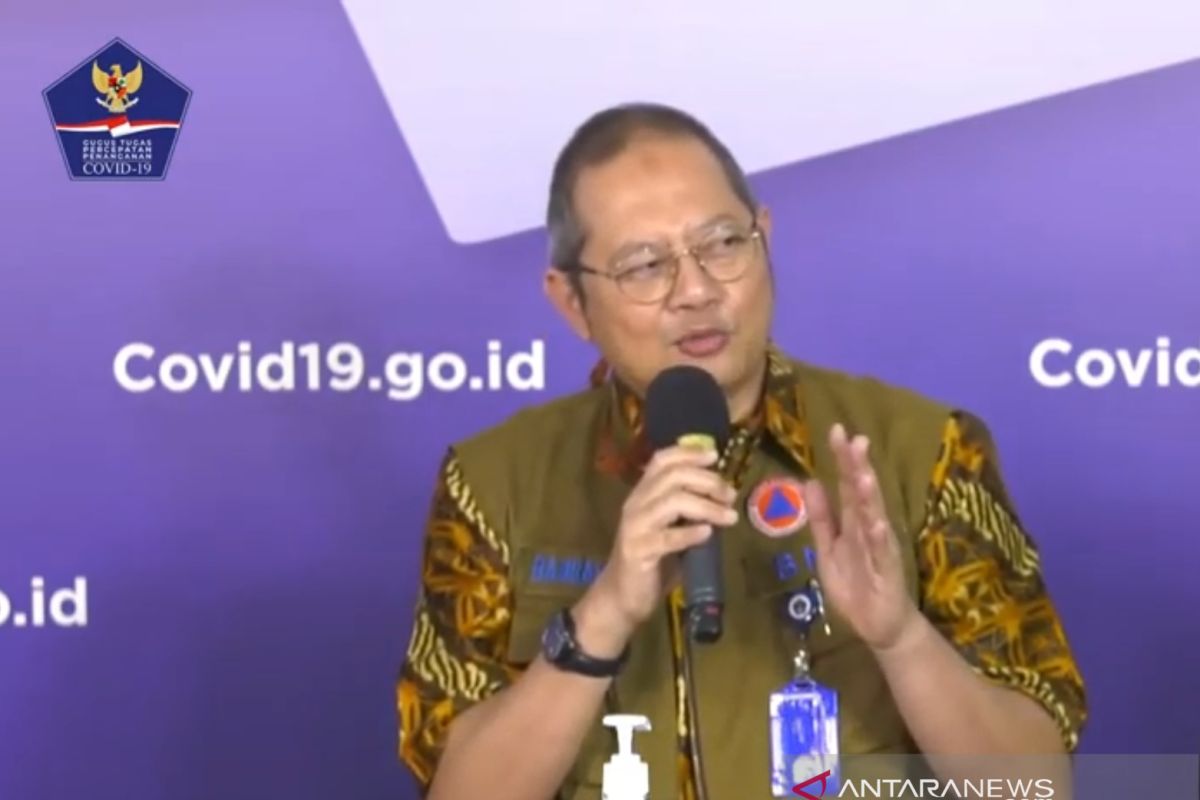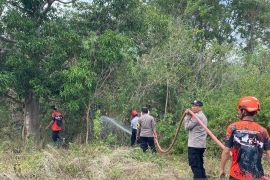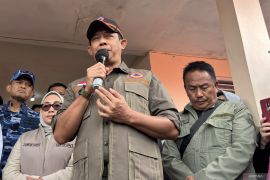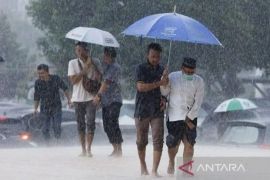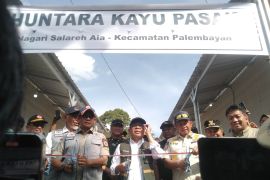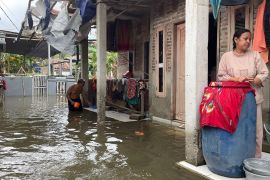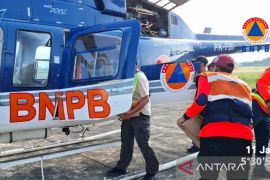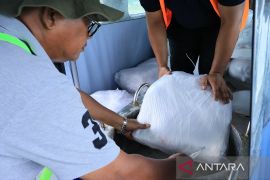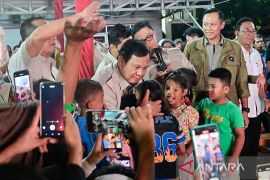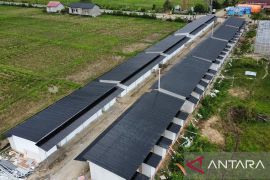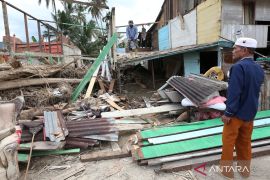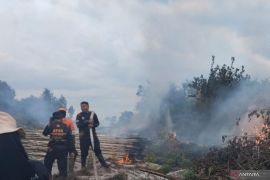This is since anything pertaining to information and data will influence the decision and will affect a COVID-19 disaster management operationJakarta (ANTARA) - Chief of the National Disaster Mitigation Agency (BNPB)'s Operation Control Center Bambang Surya Putra attached importance to data collection to fulfill the on-field needs quickly and accurately to facilitate prompt and efficient handling of the COVID-19 outbreak.
"This is because we are competing with the swiftly spreading COVID-19 pandemic. This COVID-19 is spreading faster than the speed we can handle," he stated during a press conference at the National Disaster Mitigation Agency (BNPB), Jakarta, on Wednesday.
Putra highlighted the need for collecting on-field data and information on the number of people that contracted COVID-19 to meet their needs and supplies suitably.
"This is since anything pertaining to information and data will influence the decision and will affect a COVID-19 disaster management operation," he expounded.
At the onset of the COVID-19 disaster in Indonesia, he acknowledged that the Regional Government (Pemda) mostly conducted the COVID-19 operational control. However, the regional government and task force are not necessarily ready with swift data communication.
"At that time, everyone was in a state of real shock. At that time, everyone was focused on handling," he stated.
Putra believes that handling can be done quickly, though data is also expected to be received swiftly, so that the response team can make a precise calculation of the needs.
"Hence, we are optimistic of swift data collection, so we know which hospitals need more protective equipment and also reagents or other requirements," he stated.
"Hence, when we are slow, the handling will certainly be affected," he further remarked.
The coronavirus disease, which initially struck the Chinese city of Wuhan at the end of 2019, has since then spread to at least 202 countries and territories, including Indonesia, with a massive increase in death toll.
The Indonesian government officially announced the country's first confirmed cases on March 2 this year. The ongoing COVID-19 pandemic has weakened the purchasing power of scores of Indonesian families, particularly those, who have lost their jobs.
Meanwhile, President Jokowi has highlighted the importance of fostering the spirit of "gotong royong", or mutual cooperation, in responding to the impact of the COVID-19 pandemic, arguing that the government cannot work single-handedly to combat the transmission of coronavirus infections.
The central and regional governments nationwide have also been striving persistently to flatten the coronavirus curve by imposing healthcare protocols and social restrictions.
To break the chain of transmission, large-scale social restrictions have been applied in several other cities, including Jakarta, Bogor, Depok, Tangerang, and Bekasi.
The central government has also banned homebound travel, locally known as “mudik,” during the fasting month of Ramadhan and the Idul Fitri holiday season.
Related news: ITB develops disinfection unit for personal protective equipment
Related news: President hears reports from governors on COVID-19 handling
EDITED BY INE
Reporter: Katriana, Azis Kurmala
Editor: Fardah Assegaf
Copyright © ANTARA 2020
